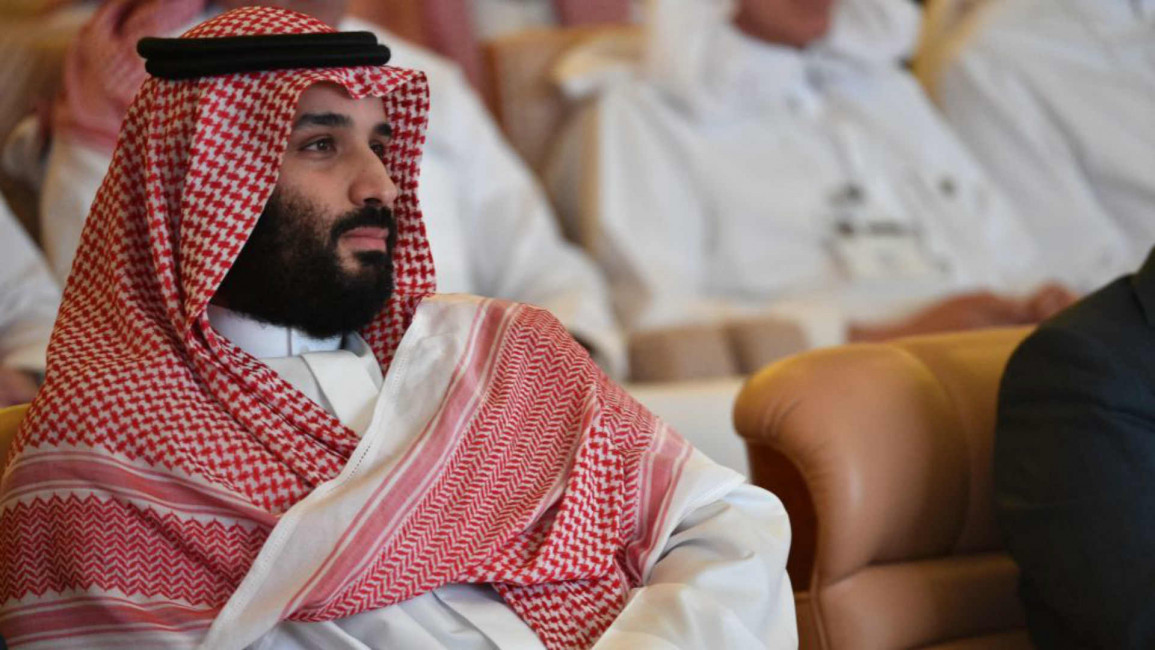
Saudi crown prince's message is clear: Kingdom is open for business, not for political activism
Indeed, according to one family member, al-Awda was detained in September 2017 following his refusal to send a tweet supportive of the blockade of Qatar, as requested by Saudi authorities.
Al-Awda has, as a result, been frequently accused of receiving Qatari money - an allegation that is increasingly awkward as signs point towards negotiations ending the two-and-a-half year rift.
Indeed, the blockading countries this week sent their football teams to compete in the Qatar-hosted Gulf Cup, and The Wall Street Journal reported a visit to Riyadh by Qatar's foreign minister, suggesting a potential rapprochement, meaning that the outcome of the al-Awda case could have regional implications.
If he is sentenced to death, this could signal Saudi Arabia's seriousness in dealing with al-Awda and others like him, who are considered at times to be either loyal to Qatar or to the Muslim Brotherhood.
Another potential reason for the delay is the announcement that this week, at least nine journalists and activists were reportedly taken from their homes in Riyadh and Jeddah by plainclothes police officers. No reason has yet been provided for these detentions, but those arrested are said to have been active in 2011 and part of a "philosophical" book club.
One of those arrested is activist and blogger Fouad al-Farhan, who had called for reform and was first arrested in 2007 yet avoided fulfilling his prison sentence after he agreed to stop blogging. The arrests signal once again that political space within Saudi Arabia is likely to continue tightening for the foreseeable future.
 |
We have known for some time that human rights and political reform will not be on the agenda for MbS |  |
Indeed, the crown prince has demonstrated that Saudi Arabia has no intention of changing course.
Human Rights Watch reports that over 200 Saudi nationals have been detained in the past year as part of the crackdown, and it is uncertain how many others remain under house arrest. As of January, the UN High Commissioner for Refugees reported that the number of asylum seekers from Saudi Arabia tripled in 2017 compared with 2012, signalling a disturbing trend that an increasing number of Saudi nationals feel unsafe in their country.
Despite these figures, which are no doubt significant, and despite the recent arrests, Saudi Arabia sees no immediate need to take domestic human rights issues and the closure of political space very seriously.
Instead, the kingdom appears to be focusing on economic issues, particularly the highly anticipated upcoming Saudi Aramco IPO and securing international investments, which the arrests do not appear to have affected.
Twitter Post
|
Certainly, the kingdom is open for business, not for political activism. Saudi Arabia has also just announced a series of memorandums of understanding with the UAE, demonstrating the continued strength of that relationship, which is all the more important given reports that Saudi Aramco will rely on Abu Dhabi Investment Authority to invest in the IPO.
Read more: Saudi and UAE bolster cooperation with India, after agreement for $70 billion Maharashtra oil refinery
At last month's Future Investment Initiative forum in Riyadh, the kingdom signed $20 billion worth of deals - down from $56 billion in 2018, but still significant - and Uber's CEO even gave an interview apparently absolving the government of Jamal Khashoggi's murder, revealing the extent to which western companies want to do business with the kingdom as it rapidly seeks to open up to investors and tourists alike.
Further, Saudi Arabia has just assumed the G20 presidency, which King Salman has pointed to as proof of the kingdom's importance to the global economy. Amnesty International called on world leaders this week "to address the kingdom's heinous human rights record" as it takes up the presidency.
As the country prepares to host several summits, it is seeking to find a political solution in Yemen, which apparently is seen as far more important to rehabilitating its image, than taking on reform at home. Indeed, the war in Yemen has become of great political concern to both US and UK publics and legislatures, who have as a result reviewed their arms trade deals with Saudi Arabia.
The Yemen war, then, because it has international consequences, is much more of a priority for the Saudi leadership than releasing political prisoners at home.
We have known for some time that human rights and political reform will not be on the agenda for Mohammed bin Salman.
The delay with al-Awda's verdict, as well as the most recent detentions, demonstrate the extent to which the judicial system remains in the hands of the crown prince, and is unlikely to change.
 |
Until Saudi Arabia's domestic actions against activists have international consequences, they are unlikely to change |  |
Indeed, Saudi Arabia seems to be tending to its reputation more for economic reasons, specifically global investments and the Aramco IPO, as well as stopping the war in Yemen and potentially finding a détente with Qatar, than granting greater political freedoms at home.
Until Saudi Arabia's domestic actions against activists have international consequences, they are unlikely to change.
Follow her on Twitter: @CourtneyFreer
Opinions expressed in this article remain those of the author and do not necessarily represent those of The New Arab, its editorial board or staff.




